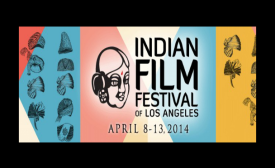Cultural Diplomacy
Malaysian Film Censorship chairman said Darren Aronofsky's film Noah is not being screened in Malaysia -- whose population is 60 percent Muslim -- to protect the harmony and sensitivity of the country's multiracial community.

In April 2013, I had the opportunity to accompany the Hawaiian slack key guitar ensemble Keola Beamer and Jeff Peterson, with Moanalani Beamer, as tour manager as the group toured Brazil with the U.S. Department of State's American Music Abroad program.
We sat down with panelists from our 2014 conference, 'A New Era in Cultural Diplomacy: Rising Soft Power in Emerging Markets,' and asked them to share their thoughts on the power of culture and the arts on the world stage. Here, Eko Film Festival Founder Hope Obioma Opara discusses how this festival should benefit Nigeria.
Hawaiian slack key guitar ensemble Keola Beamer toured Brazil in April with the American Music Abroad program. CPD Blogger Paul Rockower describes what happened next.
Canada is widely hailed as a multicultural success state. As the first country to adopt multiculturalism as official policy, and with high rates of integration among immigrant populations, it is often looked at as a model to be followed. Recently, though, the French province of Quebec has dented this global reputation with the introduction of Bill 60, popularly known as the Quebec Charter of Values.
As one of the most bankable stars on the planet, Johnny Depp has the luxury of keeping his PR obligations brief. But he was jumping through press hoops this week as he made his first trip to China to sell moviegoers on his new sci-fi film, "Transcendence," which opens here April 18.
The International Court of Justice in The Hague rightly ordered Japan to stop its current whaling program in the Southern Ocean Whale Sanctuary around Antarctica, a large reserve established by the International Whaling Commission. The United Nations’ highest court came down clearly on the side of conservation and international opinion.







